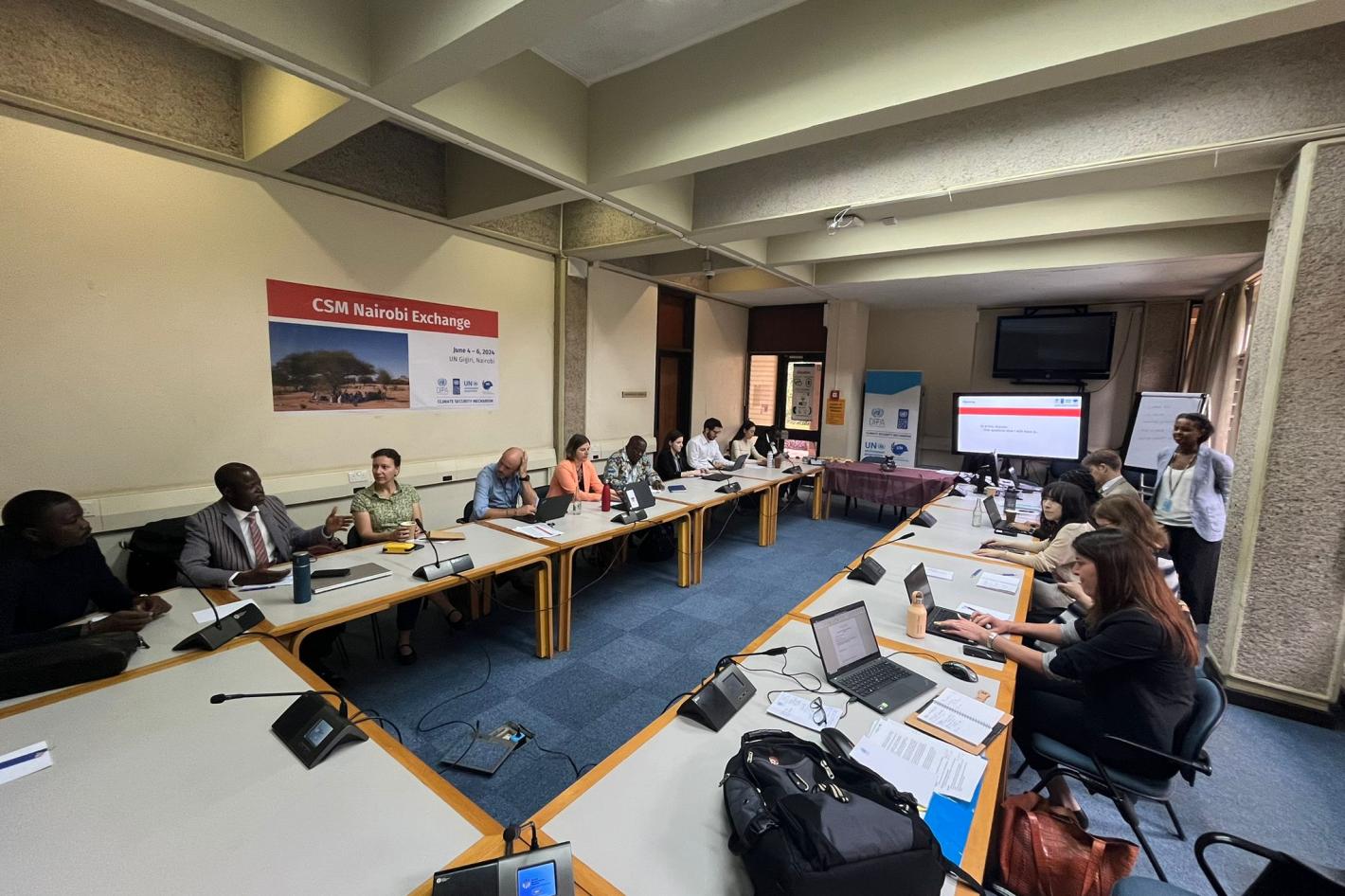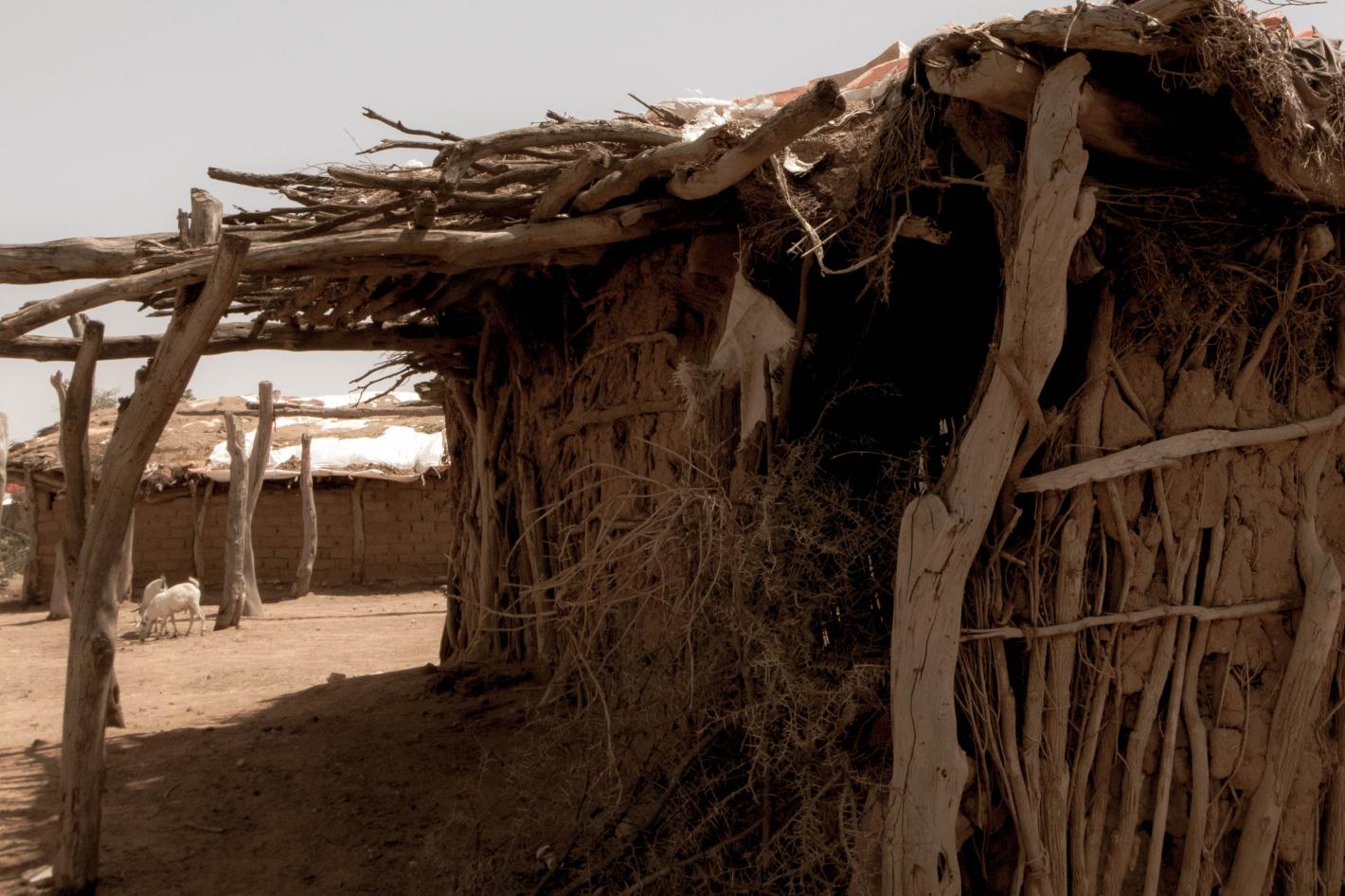
Responding to growing calls for action among affected communities, Member States and international policymakers, the Climate Security Mechanism (CSM) strengthens the capacity of the UN and its partners to systematically analyze and address the linkages between climate change, peace and security (CPS) and to advance peace-positive climate action, catalyze climate-informed approaches to peace and security, and forge partnerships with actors at all levels to exchange information and build the evidence base.
Since 2018, the CSM has streamlined its work into four priority areas:

1. Support to analysis and action
Support to analysis and action remains the CSM’s most direct way of catalyzing impact in countries and regions affected by climate-related peace and security risks, including through targeted assistance delivered via Climate, Peace and Security advisors deployed with CSM support.
Through support to analysis and action on the frontlines, the CSM works with the UN system and its partners to analyze climate, peace and security linkages, develop inclusive and forward-looking risk management strategies, and identify opportunities for co-benefits between peacebuilding and climate action. To do this, the CSM draws on its partnerships across sectors as well as with Member States, regional and sub-regional organizations, civil society and the global research community.
Find out more about support to analysis and action.
An example of the CSM's support to analysis and action
As of January 2025, the CSM had launched 16 context-specific initiatives at regional, country and community level that address the linkages between climate change, peace and security and catalyze action. Through those initiatives and beyond, the CSM has so far supported more than 20 UN Country Teams and missions in integrating CPS risks in analytical and planning processes.
Global workstreams
In addition to backstopping integrated analysis and action in regional and country contexts, the CSM maintains thematic workstreams to create an enabling environment for more climate, peace and security work to emerge across the UN system and beyond, while amplifying the CSM’s impact.

2. Advocacy, partnerships and convening
Through advocacy, partnerships and convening, the CSM works with partners to increase collaboration between global, regional and national decision-makers and stakeholders to harmonize climate action, peace and security policies, and scale up and improve access to climate finance in fragile and conflict-affected contexts.
Find out more about advocacy, partnerships and convening.
An example of the CSM's work on advocacy, partnerships and convening
CSM Partnership Dialogue: Mobilizing Partnerships to Bridge Climate Action, Peace and Security
The CSM convened its first Partnership Dialogue on 28 April 2023 in New York and online. It showcased how the CSM is working with partners to maximize its catalytic impact and deliver results in frontline countries and regions. Partners as well as advisors and experts deployed with CSM support highlighted progress and perspectives with examples from the Arab States, the Horn of Africa, the Philippines, and Northern Central America. The CSM team presented priorities for the CSM’s new phase (2023-2025), which focuses on support to analysis and action, knowledge co-generation, data and evidence, and diversification of partnerships. An opportunity for a wide range of current and prospective partners to deepen their understanding of the CSM’s work and vision, the Dialogue was attended by 90+ participants, including 35+ Member States among which donor partners, members of the Group of Friends on Climate and Security, and Climate for Peace members. Ahead of the Dialogue, the CSM released its first Brochure providing an overview of the CSM and its new phase.

3. Knowledge co-generation and management
Through knowledge co-generation and management, the CSM contributes to a stronger and data-driven evidence base as well as a set of tools enabling UN entities, in particular at local level, to analyze climate-related peace and security risks and develop response strategies in an integrated, gender-sensitive manner that takes local and indigenous knowledge as well as nature-based solutions into account.
Find out more about knowledge co-generation and management.
Thematic Review on Climate Security and Peacebuilding
The Thematic Review on Climate Security and Peacebuilding, commissioned by DPPA’s Peacebuilding Support Office (PBSO) in partnership with FAO, UNICEF, the CSM and the United Kingdom, and led by UN University’s Centre for Policy Research (UNU CPR), distills trends and lessons from CPS and environmental peacebuilding programming supported by the Peacebuilding Fund (PBF). It suggests guidance for future CPS investments in fragile and conflict-affected contexts. Key findings and recommendations include:
- Cross-border and regional approaches: Due to the transnational nature of CPS risks, cross-border and regional CPS approaches are key and related programming should have a greater focus on building political engagement around the issue.
- Risk-tolerant approach: Of the 10 countries that received the most CPS and environmental peacebuilding PBF funding between 2017-2021, nine were among the most vulnerable to climate change. Effective PBF investments can offer proof of concept that other climate funds and donors can consider scaling up.
- Co-benefits of climate, peace and security: Investment in CPS and environmental peacebuilding approaches, including improvements to agriculture and natural resource infrastructure, get to the heart of what many communities view as both their most pressing human security concerns, and the factors that contribute to persistent conflict and competition. Greater such investment should be encouraged.
- Gender-climate-peace and security nexus: Many projects utilize natural resource management or localized climate adaptation as an entry point for greater inclusion of women and youth in local governance and decision-making processes. Greater support to learning in this field is however still necessary.
- Reinforcing project design, learning and innovation: While it is important to continue to reinforce existing guidance on project design, monitoring and evaluation, it is critical to promote flexible project implementation and encourage check-ins or referrals back to the “theory of change” throughout the project cycle to strengthen learning and reflection on the relatively new field of CPS programming.

4. Capacity building
Through capacity building, the CSM enables policymakers and practitioners in UN entities and beyond to combine technical and political expertise to develop a shared understanding and approach regarding the complex interlinkages between climate change, peace and security.
Find out more about capacity building.
Workshop on multilateral partnerships on Climate, Peace and Security
In the lead-up to the fourth edition of the Aswan Forum for Sustainable Peace and Development, an Aswan Forum Preparatory Workshop was co-organized in Cairo by DPPA, DPO and the Cairo International Center for Conflict Resolution, Peacekeeping and Peacebuilding (CCCPA), along with adelphi and the Center for International Peace Operations (ZIF). The workshop was dedicated to multilateral partnerships on CPS and focused on mission cooperation with regional organizations in the Horn of Africa, West Africa and the Sahel and Central Africa, to explore challenges and successes within the CPS space, as well as opportunities for collaboration and complementarity within and across organisations. It convened CPS Advisors deployed to UN missions (UNOWAS, UNOCA, OSE-HoA, UNMISS), experts and policymakers from relevant CPS and peacebuilding communities within regional organizations (African Union, European Union, League of Arab States, Liptako Gourma Authority) and regional economic organizations (IGAD, ECCAS). The workshop facilitated cross-cutting inter-institutional knowledge exchange, strengthened collaboration among CPS Advisors, and the identification of avenues for effective multi-level partnerships that build capacity and exchange information. It built upon the 2022 UN CPS Practitioners Dialogue (CSM & UNSSC).
